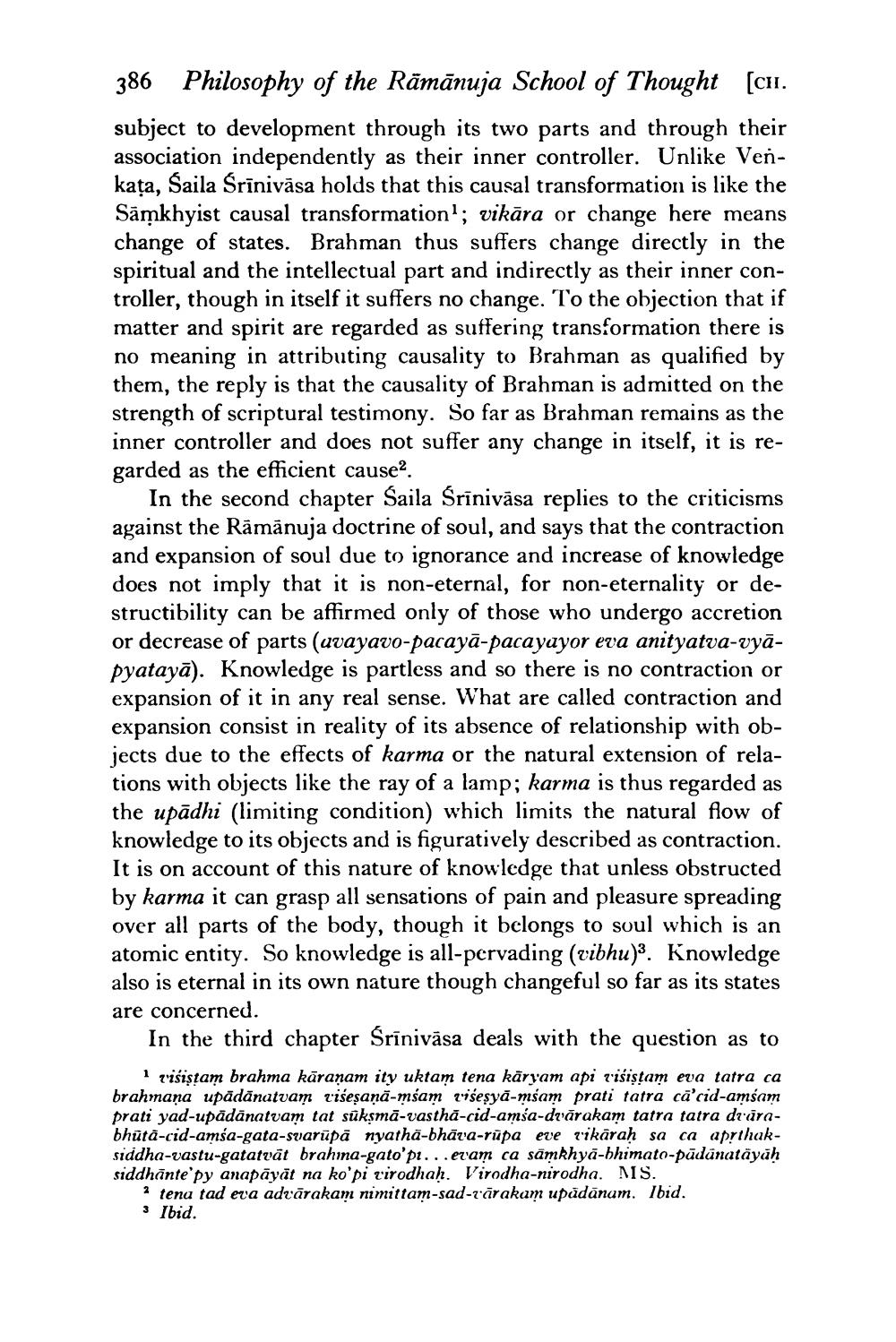________________
'line'
My oral,
386 Philosophy of the Rāmānuja School of Thought [ci. subject to development through its two parts and through their association independently as their inner controller. Unlike Venkata, Saila Śrīnivāsa holds that this causal transformation is like the Sāmkhyist causal transformation"; vikāra or change here means change of states. Brahman thus suffers change directly in the spiritual and the intellectual part and indirectly as their inner controller, though in itself it suffers no change. To the objection that if matter and spirit are regarded as suffering transformation there is no meaning in attributing causality to Brahman as qualified by them, the reply is that the causality of Brahman is admitted on the strength of scriptural testimony. So far as Brahman remains as the inner controller and does not suffer any change in itself, it is regarded as the efficient cause?
In the second chapter Saila Śrīnivasa replies to the criticisms against the Rāmānuja doctrine of soul, and says that the contraction and expansion of soul due to ignorance and increase of knowledge does not imply that it is non-eternal, for non-eternality or destructibility can be affirmed only of those who undergo accretion or decrease of parts (uvayavo-pacayā-pacayayor eva anityatva-vyāpyatayā). Knowledge is partless and so there is no contraction or expansion of it in any real sense. What are called contraction and expansion consist in reality of its absence of relationship with objects due to the effects of karma or the natural extension of relations with objects like the ray of a lamp; karma is thus regarded as the upādhi (limiting condition) which limits the natural flow of knowledge to its objects and is figuratively described as contraction. It is on account of this nature of knowledge that unless obstructed by karma it can grasp all sensations of pain and pleasure spreading over all parts of the body, though it belongs to soul which is an atomic entity. So knowledge is all-pervading (vibhu)3. Knowledge also is eternal in its own nature though changeful so far as its states are concerned.
In the third chapter Srinivāsa deals with the question as to
1 pišiştam brahma kāraṇam ity uktam tena kāryam api risistam eva tatra ca brahmana upādānatvam višeşaņā-msam riseşya-msam prati tatra că'cid-amsam prati yad-upādānatvam tat sūksmā-vasthă-cid-amsa-dvărakam tatra tatra drārabhūtā-cid-amsa-gata-svarūpā nyatha-bhāva-rupa eve rikāraḥ sa ca aprthaksiddha-vastu-gatatvāt brahina-gato'pi...eram ca samkhya-bhimato-pādanatäyah siddhante'py anapāyāt na ko'pi rirodhah. Virodha-nirodha. NIS.
* tena tad eva adrārakam nimittam-sad-vārakam upādānam. Ibid. 3 Ibid.




